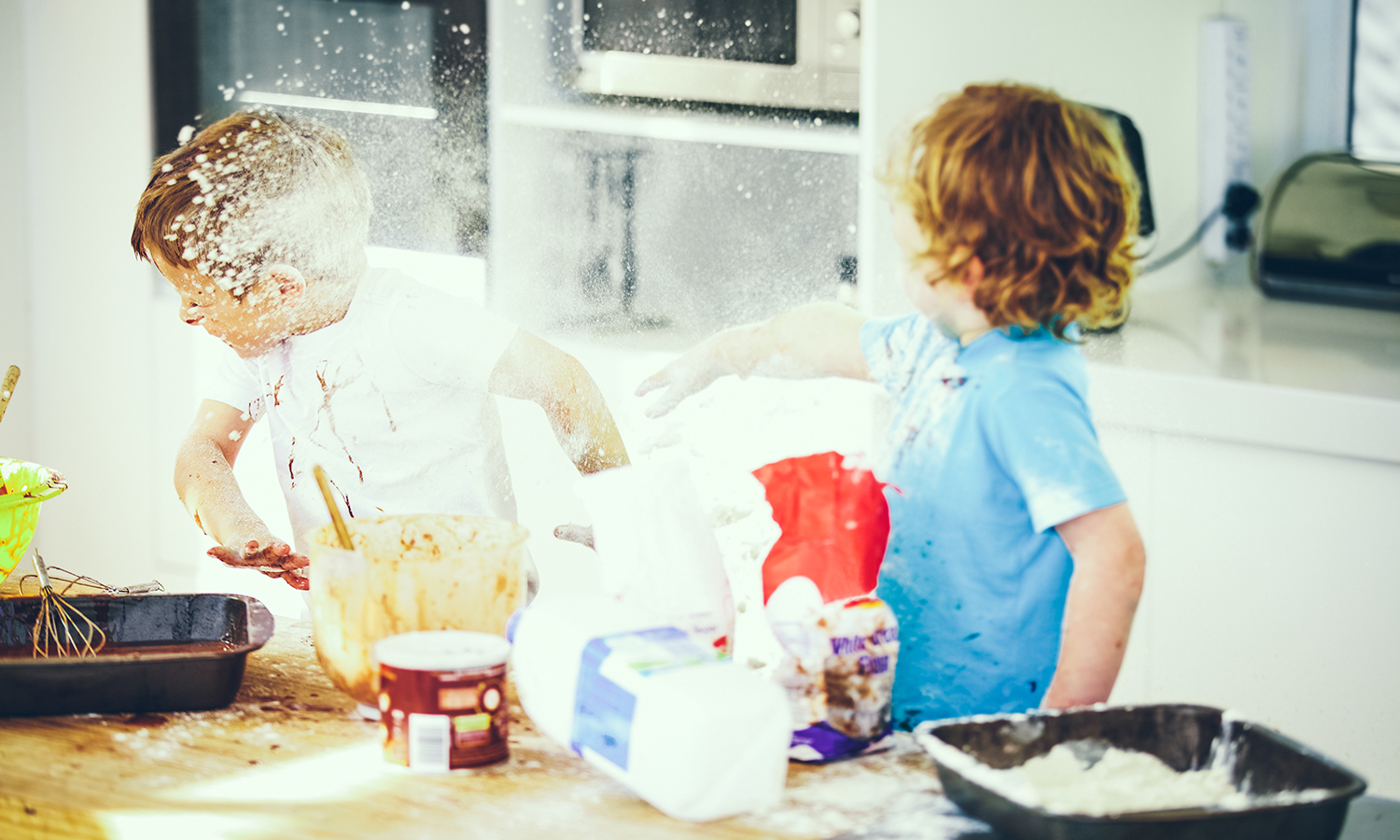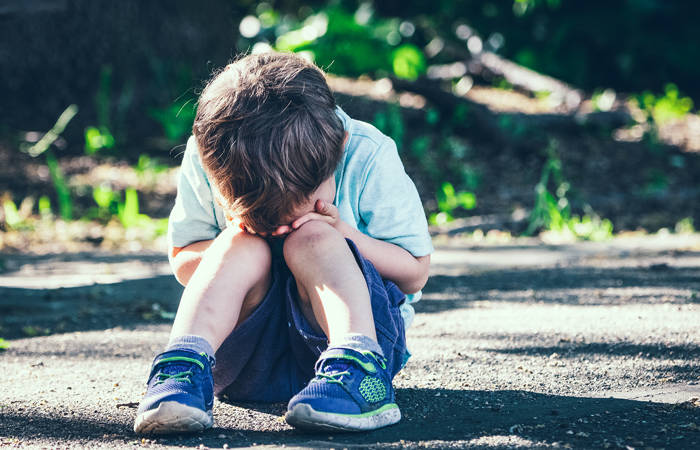Like what you see?
Sign up to receive more free parenting advice.
Thank you for subscribing to our newsletter!
Child Development

Credit: iStock.com/PeopleImages
As a parent, it can feel like you are spending more time playing referee to your children’s disagreements than parenting.
Whether it is because both want the same toy (despite the many toys being neglected all over the house), or whether it’s a she-said-he-said on who started the pushing first, parents can often feel lost in their children’s disagreements.
- When should they intervene?
- Should they just let them fight it out?
- When will they just get along?
While it might not stop the constant bickering, the good news is that sibling conflict can be good for children and parents are being advised to not jump in to referee mode too quickly.
The authors of a literature review on sibling relationships found that sibling interactions are unique opportunities for social-cognitive development.
“Through their conflicts siblings can develop skills in perspective taking, emotion understanding, negotiation, persuasion, and problem solving,” they say.
“These competencies extend beyond the sibling relationship and are linked to later social competence, emotion understanding, and peer relationships.”
Sibling conflict can teach life skills
Dr Rachael Sharman, Senior Lecturer in Psychology at the University of the Sunshine Coast agrees that sibling conflict can teach vital life skills.
She highlights that parents need to understand the root of sibling conflict – siblings often compete for parental resources.
“Siblings are known to compete with each other specifically for parental resources,” she says.
“So, whether that is time, attention or material resources, that is to be expected.”
She adds that, in planning their family, parents need to take into account the pressure additional children place on parental resources and the parent’s ability to meet their children’s needs.
“There is some mythology around the idea that adding brothers or sisters will give an existing child a playmate and help take the load off parents,” she says.
“Recent Australian and United Kingdom research has debunked that idea utterly, adding extra children tends to add extra demand and stress to a family.”
Australian research found that second children increase time pressure and negatively impact parents’ mental health.
Dr Sharman advises parents to ensure that their resources are evenly spread amongst the siblings in order to reduce conflict.
“The likely precipitating factor in sibling conflict is competition, so ensuring time, energy and material wealth is shared equally amongst your children will assist in reducing conflict,” she says.
“It is also important to teach children about the value of sharing, co-operation and give and take.”
I think an anti-intervention or at least delayed intervention approach works well if the conflict is developmentally expected, for example fighting over access to a toy, and there isn't a clear power imbalance between the siblings and/or the argument isn't deteriorating to violence.Dr Rachael Sharman
Delay intervention and be fair
In a 2018 study, researchers found that when siblings in middle childhood thought their parents treated them unfairly compared to their siblings, they were more likely to differ in academic achievement later on.
Therefore, the importance of not having any “favourites” or balancing your resources is as important as managing sibling conflict to keep it healthy.
Dr Sharman advises that parents should delay intervening in sibling conflicts - when appropriate - to maximise the benefits of the life skills learned through the conflict.
“I think an anti-intervention or at least delayed intervention approach works well if the conflict is developmentally expected, for example fighting over access to a toy, and there isn't a clear power imbalance between the siblings and/or the argument isn't deteriorating to violence,” she says.
Dr Sharman adds that parents need to be aware of sibling bullying and the detrimental effects this can have on the victim.
“Sibling bullying is different to expected, ‘normal’ sibling conflict,” she says.
“It is a repeated pattern of abuse that appears motivated by one sibling’s desire to maintain power over the other.”
In a recent United Kingdom study, researchers found that 28 per cent of children reported being involved in sibling bullying, as the bully, victim or both.
The study found that sibling bullying typically started at the age of eight years old and defined it as, “repeated aggressive behaviour between siblings intended to inflict harm, either physically (for instance hitting, kicking or pushing), psychologically (for instance saying nasty and hurtful things), socially (for instance by telling lies or spreading rumours) or property based (such as stealing or damaging property)”.
Other research found that sibling bullying increases the victim’s risk of experiencing peer bullying and developing emotional problems in adulthood.
Another study found that experiencing sibling bullying is a risk factor for depression and self-harm in adulthood.
“Factors that increase the chance of sibling bullying within a family include the presence of an eldest male sibling and competition for scarce parental resources,” says Dr Sharman.
“For example, if both parents are time-poor, one sibling might compete for the bulk of their time and attention over the needs of the others.
“It is worth watching the response of the likely victim. Do they appear overtly afraid of their sibling? Do they quickly withdraw and accede to their demands without much protest?”
In the United Kingdom study, they also found large families (with many siblings) and families in financial stress were strong factors in predicting sibling bullying.
They found that single-parent households, lower parental education or social class didn’t increase the risk of sibling bullying.
Tips for managing sibling conflict
- Set the ground rules, for example speaking nicely or respectfully towards each other, or no physical violence.
- Spread your resources (time, attention, etc) equally between the children.
- Be aware that you are a role model, children learn how to manage conflicts through watching their parents manage conflicts.
- Modelling empathy helps children learn empathy and understand how their words and actions impact their sibling.
- Not everything has to be fair and uneven, children need to know that dependant on age or experiences, sometimes one child gets something the other doesn't.
- Don't forget triggers like being tired and hungry which can play a big part in sibling fights.
- Teach children to identify their emotions and how to deal with them.
- If the conflict is escalating, separating them until emotions have calmed down is best before bringing them together to discuss the disagreement.
- Organise family activities, as this can help establish how your kids can interact with each other, as well as, provide them with parental attention.
- Understand that sometimes children just need time apart – organise separate play dates or take them out for some one-on-one time.






